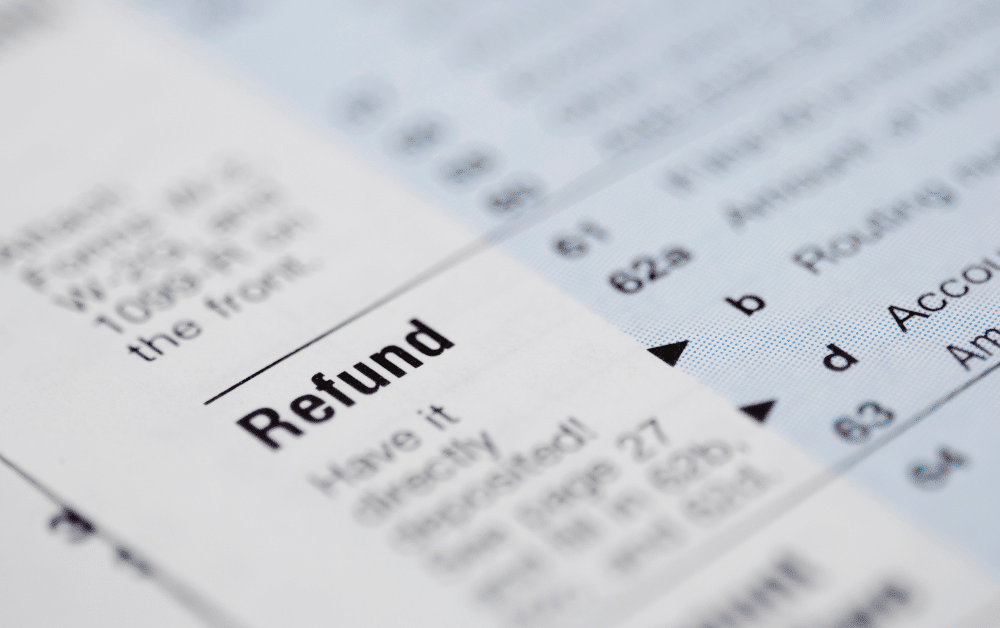Will the IRS Take My Refund if I Have an Installment Agreement? Treasury Offset Program

Yes, if you have an installment agreement with the IRS, they will automatically take your refund and apply it to your outstanding debt—but this is excellent news, not a problem. Your debt gets paid down faster without any extra effort, and you absolutely cannot skip next month’s payment to “make up for it.” The refund application and your monthly payments are completely separate processes, so you must continue making scheduled payments even after a refund is applied to avoid defaulting on your agreement.
The Treasury Offset Program recovered more than $3.8 billion in federal and state delinquent debts in fiscal year 2024, demonstrating how efficiently this system processes millions of refund applications to reduce outstanding balances.
The Treasury Offset Program (TOP) collects past-due debts by matching taxpayer information with federal payments like tax refunds. For expats with IRS installment agreements, any refund from your expat tax return—whether from the Foreign Earned Income Exclusion or Foreign Tax Credit—automatically goes toward your balance.
Does the Treasury Offset Program Prevent Me from Getting My Tax Refund?
Not exactly. When the Treasury processes your refund, the system automatically checks if your name and taxpayer identification number match those of anyone in the delinquent debt database. If there’s a match, TOP applies the refund amount to your debt before issuing any remainder.
For expats, this process means:
- Your refund from FEIE or Foreign Tax Credit gets applied immediately
- You receive a written notification explaining the offset amount and the remaining balance
- Any refund amount exceeding your total debt gets returned to you
- You continue making regular installment payments even after the refund application
Example: Maria, an expat in Italy, owes $18,000 on an installment agreement with $250 monthly payments. Her 2025 tax return generates a $3,200 refund due to the Foreign Tax Credit. The IRS applies this $3,200 automatically, reducing her balance to $14,800. Maria still owes her next month’s $250 payment as scheduled.
Can I Skip My Next Payment Since My Refund Was Applied?
Absolutely not. This is one of the most important rules to remember: refund application and monthly payments are separate processes. Missing your scheduled payment can trigger default procedures, even if a large refund was recently applied to your account.
Why does this separation exist?
- The refund application is an automatic debt reduction.
- Monthly payments maintain your formal agreement status
- Skipping payments violates your installment agreement terms
- Penalties and interest continue accruing until your balance reaches zero
Real scenario: David in Singapore has a $400 monthly installment agreement. His $2,500 refund gets applied in March. He cannot skip his April payment, thinking he’s “ahead” by $2,500. His April payment remains due as scheduled, or his agreement enters default status.
What Debts Can the Treasury Offset Program Collect from My Refund?
Through TOP, the Bureau of Fiscal Service may reduce your refund to pay multiple types of past-due obligations beyond IRS tax debt.
Common offset scenarios for expats include:
- Back taxes from previous years, before learning about filing requirements
- Student loan defaults that occurred after moving abroad
- State tax debts from your last US residence
- Child support obligations continue while overseas
- Federal agency non-tax debts
- Unemployment compensation fraud debts
If your refund exceeds your total balance on all outstanding tax liabilities, you receive a refund of the excess unless you owe other past-due amounts subject to offset.
Stop guessing. Download the expert guide now.
"*" indicates required fields

How Does This Work for Different Types of Expats?
Corporate Expats with Tax Equalization
If your employer provides tax equalization, refund offsets might affect year-end true-up calculations. Coordinate with both your tax advisor and HR department to understand implications for your compensation package.
Late Filers Using Streamlined Procedures
Expats using Streamlined Filing Compliance Procedures to catch up on unfiled returns often see multiple years of refunds applied to installment agreements. This frequently results in faster debt resolution than originally planned.
Digital Nomads with Variable Income
Your ability to maintain payments might fluctuate with location changes and income variations. If your financial situation changes, call the IRS immediately at 800-829-1040 to discuss options like reducing monthly payments.
What Protections Exist for Married Expats Filing Jointly?
Injured Spouse Relief
If you filed a joint return and the debt belongs to your spouse, you can file Form 8379 to request your portion of the refund back. This particularly helps expats married to non-US persons with separate debt obligations.
Economic Hardship Situations
The IRS can bypass the refund offset for outstanding federal tax liability if you establish economic hardship through an Offset Bypass Refund (OBR) request. Living abroad with high costs or currency fluctuations might qualify you for this relief.
For questions about offsets, call the Bureau of Fiscal Service TOP call center at 800-304-3107 (TTY/TDD 800-877-8339), Monday through Friday, 7:30 a.m. to 5 p.m. CST.
What Should I Do Right Now?
If you currently have an installment agreement:
- Continue making all scheduled payments regardless of refund applications
- Monitor your account through the IRS online portal to track balance changes
- Plan for accelerated debt resolution due to automatic refund applications
- Update your address with the IRS if you move using Form 8822
If you’re considering an installment agreement:
- File all required returns first to establish eligibility
- Calculate realistic monthly payments you can maintain from abroad
- Consider how future refunds from FEIE or Foreign Tax Credits will accelerate the payoff
- Apply online for lower fees if you owe less than $50,000
Many expats benefit from refund offsets because they often generate larger refunds due to foreign tax credits, significantly reducing their installment agreement timeline.
How Greenback Can Help You with Payment Plans and Compliance
We’ve helped over 23,000 expats handle complex tax situations, including installment agreements and Treasury Offset Program issues. Our comprehensive expertise covers both current year compliance and resolving past tax problems through streamlined procedures and payment plans.
Take Note: If you realize you’re overwhelmed by IRS debt collection procedures while living abroad, let us help. You’ll have peace of mind knowing your taxes and payment arrangements are handled correctly by professionals who understand both expat tax rules and IRS collection procedures.
No matter how late, messy, or complex your return may be, we can help. You’ll have peace of mind, knowing that your taxes were done right.
Contact us, and one of our customer champions will gladly help. If you need specific advice on your tax situation, click below to get a consultation with one of our expat tax experts.
This article provides general information about the Treasury Offset Program and installment agreements. Individual circumstances vary, and you should consult a qualified tax professional for specific advice. All information is current as of the 2025 tax year to be filed in 2026.



